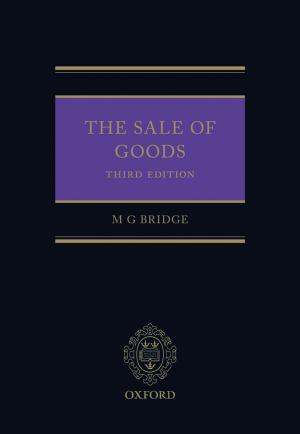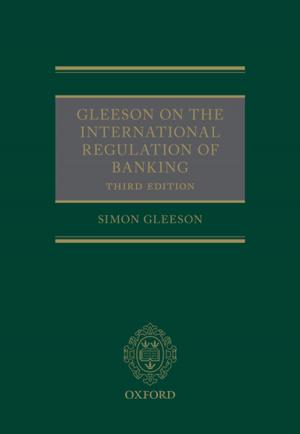Hume's True Scepticism
Nonfiction, Religion & Spirituality, Philosophy, History, Criticism, & Surveys, Mind & Body| Author: | Donald C. Ainslie | ISBN: | 9780191064203 |
| Publisher: | OUP Oxford | Publication: | September 3, 2015 |
| Imprint: | OUP Oxford | Language: | English |
| Author: | Donald C. Ainslie |
| ISBN: | 9780191064203 |
| Publisher: | OUP Oxford |
| Publication: | September 3, 2015 |
| Imprint: | OUP Oxford |
| Language: | English |
David Hume is famous as a sceptical philosopher but the nature of his scepticism is difficult to pin down. Hume's True Scepticism provides the first sustained interpretation of Part 4 of Book 1 of Hume's Treatise, his deepest engagement with sceptical arguments. Hume notes there that, while reason shows that we ought not to believe the verdicts of reason or the senses, we do so nonetheless. Donald C. Ainslie argues that Hume uses our reactions to the sceptical arguments as evidence in favour of his model of the mind. If we were self-conscious subjects, superintending our rational and sensory beliefs, nothing should stop us from embracing the sceptical conclusions. But instead our minds are bundles of perceptions with our beliefs being generated, not by reflective assent, but by the imagination's association of ideas. We are not forced into the sceptical quagmire. Nonetheless, we can reflect and philosophy uses this capacity to question whether we should believe our instinctive rational and sensory verdicts. It turns out that we cannot answer this question because the reflective investigation of the mind interferes with the associative processes involved in reason and sensation. We thus must accept our rational and sensory capacities without being able to vindicate or undermine them philosophically. Hume's True Scepticism addresses Hume's theory of representation; his criticisms of Locke, Descartes, and other predecessors; his account of the imagination; his understanding of perceptions and sensory belief; and his bundle theory of the mind and his later rejection of it.
David Hume is famous as a sceptical philosopher but the nature of his scepticism is difficult to pin down. Hume's True Scepticism provides the first sustained interpretation of Part 4 of Book 1 of Hume's Treatise, his deepest engagement with sceptical arguments. Hume notes there that, while reason shows that we ought not to believe the verdicts of reason or the senses, we do so nonetheless. Donald C. Ainslie argues that Hume uses our reactions to the sceptical arguments as evidence in favour of his model of the mind. If we were self-conscious subjects, superintending our rational and sensory beliefs, nothing should stop us from embracing the sceptical conclusions. But instead our minds are bundles of perceptions with our beliefs being generated, not by reflective assent, but by the imagination's association of ideas. We are not forced into the sceptical quagmire. Nonetheless, we can reflect and philosophy uses this capacity to question whether we should believe our instinctive rational and sensory verdicts. It turns out that we cannot answer this question because the reflective investigation of the mind interferes with the associative processes involved in reason and sensation. We thus must accept our rational and sensory capacities without being able to vindicate or undermine them philosophically. Hume's True Scepticism addresses Hume's theory of representation; his criticisms of Locke, Descartes, and other predecessors; his account of the imagination; his understanding of perceptions and sensory belief; and his bundle theory of the mind and his later rejection of it.















